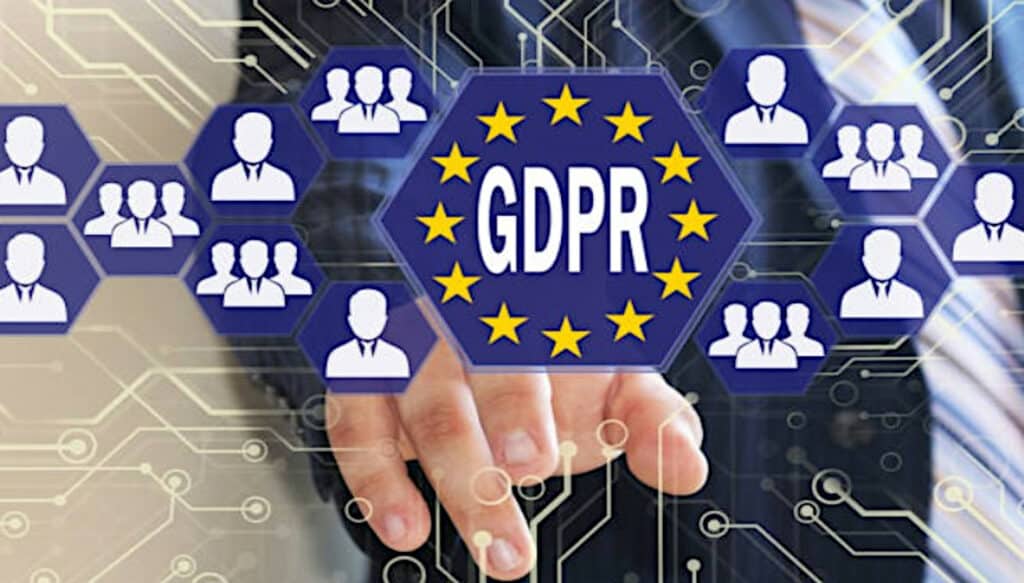Your company uses data, but your staff are not yet trained in data protection. It’s important to know that the General Data Protection Regulation or GDPR is a European regulation designed to protect the personal data of all citizens affected by personal data processing.
This general data protection regulation GDPR came into force on May 25, 2018. Its aim is to bring all companies into compliance in terms of personal data protection.
Given that this new legislation in force affects you, the first thing you should think about is how to bring your organization into compliance. Find out everything you need to know to ensure that your staff understand what data protection is all about.
What is the GDPR and why is it important?
Since the date of its implementation, all companies and public bodies, websites, e-commerce, blogs and newspapers engaged in the processing and tracking of personal data have had to adapt to the rules of the GDPR.
The regulation aims to be able to protect customers’ and users’ personal data from being unfairly disclosed in a way that violates the privacy rights of people who carry out certain transactions, or choose to access certain services or buy products.

However, interpreting the GDPR for many companies has not been as straightforward as it initially seemed, particularly the adaptation of staff and data controllers. Both private and public companies found themselves initially unprepared.
That’s why, since its approval, GDPR training courses have been created to fill this gap and designed to create a professional figure capable of operating as a data controller in compliance with the regulation.
Finally, knowledge of the GDPR is very important, because after the law has been passed and all EU states are in compliance, it has also been pointed out that those who fail to comply with the rules in the best possible way risk fines of up to 4% of their annual sales and up to 20 million euros of their worldwide sales.
Is GDPR training compulsory?
A GDPR training course is aimed at employees of companies and public bodies, but also at people wishing to train in this field in order to obtain a certificate empowering them as data controllers.
Article 29 of the European Data Protection Regulation makes this training mandatory for anyone working in a company that processes personal data. Consequently, the training material must contain courses on what the GDPR says and provides for.
Indeed, in Article 29, it states that “The controller, or any person acting under his or her authority or that of the controller, who has access to personal data may process such data only if he or she is authorized to do so…”.

Furthermore, still on the subject of the tasks assigned to the DPO, Article 39 refers to the “mandatory” aspect of GDPR training, mentioning that among the checks for compliance with the regulation, training of staff involved in data processing is necessary.
In this sense, we can conclude that the answer to the question at the beginning of this paragraph is YES.
It’s worth remembering that numerous rules have been introduced to protect the personal data used by a wide range of companies in a variety of fields. And these rules have a single common thread, namely the obligation for staff involved in processing this personal data to be trained. In fact, the GDPR repeatedly insists that organizations have an action plan to prepare their employees for data processing according to the roles assigned to them, just like the fact that they must draw up a processing register in accordance with Article 30.
Today, this is a sine qua non if companies are to be able to work with data to derive usable resources for their activities and development.
Effective Employee Training for GDPR Compliance
So it’s clear that GDPR training is mandatory for staff responsible for processing personal data. But, how could you train them? By what means?
The regulation doesn’t provide any specific guidelines. Consequently, you must rely on the Data Protection Officer, who will choose a suitable training course delivered by specialists in the field, rather than simply transmitting information in the field of privacy, distributing special manuals on the content of the European regulation and in particular the obligations to be respected by those accessing personal data.
The type of training is influenced by the amount of data processed and the nature of the data. It’s important that your employees know roughly what rules they need to follow to ensure data is used correctly.
Regardless of how training is provided, you should bear in mind that its overall aim should be to explain the general and specific risks associated with data processing. It should also inform your staff of the organizational and technical measures to be adopted. Lastly, it must make them aware of their responsibilities and the penalties incurred in the event of non-compliance with the GDPR.

GDPR training can be provided in-house. It can also be taken with training organizations directly online, allowing those who work to reconcile the course with their commitments. It must provide content detailing everything you need to know about processing, storing, verifying and protecting users’ personal data in compliance with the privacy regulation.
The type of training should be aimed at all types of organization, whether public or private, and offer content that includes real-life scenarios. Your employees who need mandatory training in privacy protection or those who aspire to become DPO and work as consultants and data controllers in your organization are all concerned.










